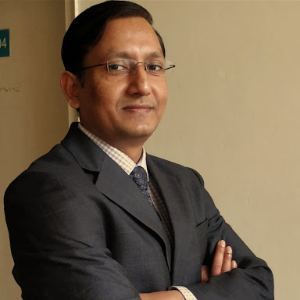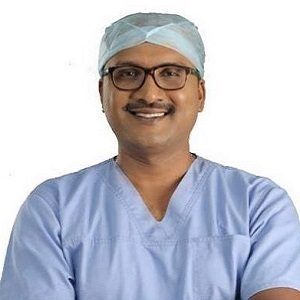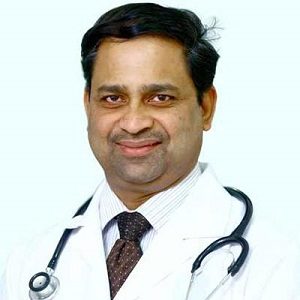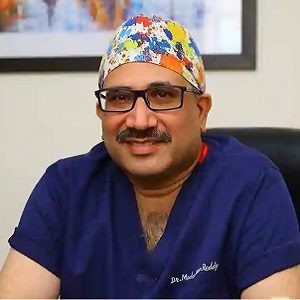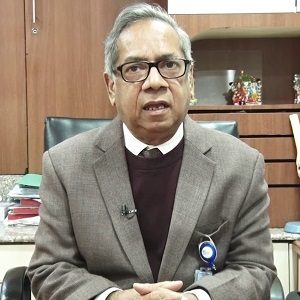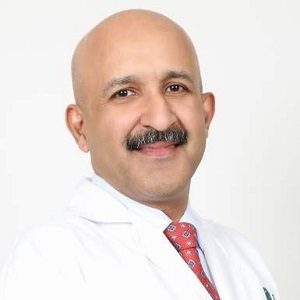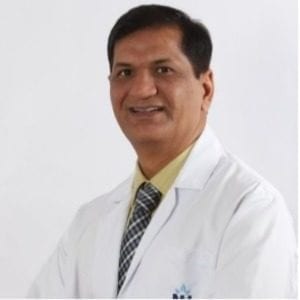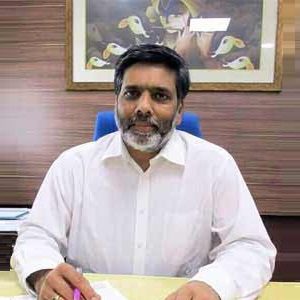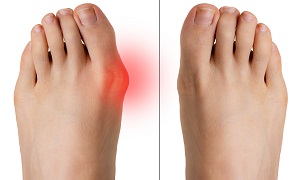Best Doctors in India for Bunion Surgery
- Orthopedic & Spine Surgeon, New Delhi, India
- Over 14 years’ experience
Profile Highlights:
- Dr. Om Prakash Gupta is a reputed Spine Surgeon in India.
- He is currently functioning as a Consultant – Orthopedics & Spine at Max Smart Super Speciality Hospital, New Delhi
- He has over 14 years of experience.
- Orthopedic Surgeon, Chennai, India
- Over 21 years’ experience
Profile Highlights:
- Dr. A Navaladi Shankar is a well-known spine surgeon and orthopedist in Chennai with 21+ years of experience.
- He completed an MBBS from Al-Ameen Medical College, MNAMS from the National Board of Education, and a Diploma from Sri Ramachandra Medical College and Research Institute.
- Dr. Shankar holds expertise in Laminectomy, Lower Back Pain and Neck Pain Treatment, Arthritis Management, and Trauma Surgery.
- Orthopaedic Surgeon, Chennai, India
- Over 22 years’ experience
Profile Highlights:
- Dr. Kornad P Kosygan is one of the few Orthopedic surgeons in India with a double FRCS degree.
- He has been successful in the diagnosis and treatment of severe Orthopedic problems throughout his career.
- Dr. Kornad is invited as an exclusive Orthopedics Specialist from over six countries in the Asian and European subcontinent.
- Dr. Kosygan has sought extensive training and exposure in the department of Orthopaedics.
- Orthopaedic Surgeon, Chennai, India
- Over 25 years’ experience
Profile Highlights:
- Dr. Madan Mohan Reddy is one of the most acclaimed Orthopedic Surgeons in India with tons of experience and knowledge that he gained over the course of years.
- He has attended several courses across the world, in countries like Switzerland, Germany, Australia, and Italy.
- Orthopedic Surgeon, New Delhi, India
- Over 42 years’ experience
Profile Highlights:
- As one of the most experienced orthopedic surgeons in Delhi, Dr. Chander Shekhar has been practicing for 42 years. He is associated with Indraprastha Apollo Hospital as a consultant.
- Dr. Chander Shekhar is interested in Knee and Hip joint replacement and revision.
- He honed his expertise by completing a fellowship in shoulder and knee arthroscopy in the United States. Besides replacement & revision surgery, he has expertise in Birmingham Hip Resurfacing, BHR with stem, and Minimally Invasive Surgery.
- Orthopedic Surgeon & Spine Surgeon, New Delhi, India
- Over 18 years’ experience
Profile Highlights:
- Dr. Amit Kumar Agarwal is a Delhi-based orthopedic, joint replacement, and spine surgeon consultant who has been assuring joint and spine health for about 18 years.
- Dr. Agarwal has garnered numerous accolades for his work in treating Joints and Musculoskeletal Disorders, pain management, sports injury, and articular degeneration during his career.
- Orthopedic Surgeon, New Delhi, India
- Over 22 years’ experience
Profile Highlights:
- Dr. Vibhu Bahl is one of the finest Orthopedist and Joint Replacement Surgeon in India. He has experience of over 22 years in this field.
- Dr. Bahl has successfully performed multiple complex and primary total knee and hip replacements over his career. Besides these, he specializes in computer-assisted total knee replacements. Patients seeking Arthroscopy for shoulder dislocation, degeneration, and repair must consult him.
- Dr. Bahl participated as a Faculty in many Arthroscopy conferences.
- He is passionate about research and has a long list of publications in prestigious national and international journals.
- Orthopedist, New Delhi, India
- Over 20 years’ experience
Profile Highlights:
- Dr. Havind Tandon is one of the best Orthopedists in Delhi, having nearly two decades of experience. He practices as a senior consultant at Indraprastha Apollo Hospital.
- Many patients who need a knee replacement, repair, or osteotomy have benefitted from his enthusiasm and skill in the field.
- Dr. Havind Tandon worked with Jhonson & Jhonson as a Facilitator for the National Joint Replacement Program.
- Pain management counseling, Joint Replacement Surgery, Spinal Therapy, reverse shoulder replacement, neuropathy assessment, foot drop, treatment of complex fractures, and Adult Joint Reconstruction are just a few of the vital services provided by Dr. Havind Tandon.
- Dr. Tandon was also recognized for his work in the field of research.
- Orthopedic and Spine Surgeon, Gurugram, India
- Over 25 years’ experience
Profile Highlights:
- With over 25 years of experience, Dr. Rajesh Kumar Verma can be generally considered a boon for people suffering from complex, bone, joint, or spine disorders.
- Currently known as one of India’s leading spine experts in India, Dr. Rajesh Kumar Verma performs as many as 50 surgeries in a month. The types of surgeries he performs include all types of spine surgeries, joint replacements, as well as complex trauma surgeries.
- Orthopedic Surgeon, Chennai, India
- Over 25 years’ experience
Profile Highlights:
- Dr. Krishnamurthy K provides consultation at the Apollo hospitals of Chennai.
- He has also worked as a senior registrar and assistant surgeon earlier and has sound knowledge of his field.
- One can reach Dr. Krishnamurthy K for treatment of fractures, joints, shoulders, knees, hip replacement, etc.
Best Hospitals in India for Bunion Surgery
Fortis Hospital, Shalimar Bagh
- City: New Delhi, India
Hospital Highlights:
- Fortis Hospital in Shalimar Bagh is a multi-super specialty hospital that strives to provide world-class patient care by leaving no stone unturned.
- Fortis, Shalimar Bagh, with 262 beds and a 7.34-acre footprint, provides the best level of medical care through its team of doctors, nurses, technicians, and management professionals.
Reliance Hospital, Mumbai
- City: Mumbai, India
Hospital Highlights:
- Reliance Hospital is one of the best super-specialty care hospitals in Navi Mumbai.
- The main purpose of this hospital is to become a trustworthy place for the best health and hope for society. The hospital is well connected to the suburbs of Mumbai and Navi Mumbai.
- The hospital has various specialty departments, viz., Accident & Emergency, Anesthesiology, Dental Services, Dermatology, Diabetology, Dietetics Nutrition, Endocrinology, ENT, Gastroenterology, General Surgery, Gynaecology And Obstetrics, Hepato Pancreato Biliary Surgery, Infectious Disease, Internal Medicine, Interventional Radiology, Laboratory Medicine, Minimal Access Laparoscopic Surgery, Nephrology, Neurosciences, Opthalmology, Orthopaedics, Paediatrics, Pain Management Palliative Care, Physical Medicine Rehabilitation, Plastic And Reconstructive Surgery, Psychiatry, Pulmonary Medicine, Radiology, Rheumatology, Transplant, Urology Andrology, Vascular Surgery
Lilavati Hospital & Research Centre, Mumbai
- City: Mumbai, India
Hospital Highlights:
- Lilavati Hospital & Research Centre is India’s premier multi-speciality tertiary care hospital and has been recognised as a global medical excellence centre.
- Lilavati Hospital & Research Centre has built an unrivalled level of trust with its patients over the years, thanks to a solid foundation that comprises cutting-edge facilities, the best medical competence, research, education, and charity endeavours.
- The hospital is quite proud of the fact that it now serves patients from all kinds of backgrounds, not just from the United States but from all around the world.
- The hospital has a total of 323 beds, one of the largest Intensive Care Units (ICUs), 12 Operation Theatres with modern amenities, over 300 consultants, and almost 1,800 personnel.
Venkateshwar Hospital, Dwarka, New Delhi
- City: New Delhi, India
Hospital Highlights:
- State-of-the-art technology and devoted healthcare professionals have been brought together under one roof at Venkateshwar Hospital to provide genuine medical care. The hospital’s professionals work together as a team to deliver the best possible treatment to their patients, using the most sophisticated equipment and information technology.
- Venkateshwar Hospital’s mission is to attain global excellence in healthcare by employing evidence-based, ethical clinical practices and cutting-edge technology by a team of highly skilled experts.
MGM Healthcare, Chennai
- City: Chennai, India
Hospital Highlights:
- Located in Chennai, India, MGM Healthcare is a top multispecialty hospital that provides all medical services under one roof.
- Since its founding in 2019, MGM Healthcare has quickly become a leading national referral centre, creating several innovative flagship initiatives.
- MGM Healthcare combines next-generation medical and digital technologies to provide better patient results.
- With 12 centres of excellence, more than 400 inpatient beds, 100 intensive care unit beds, and 24/7 emergency care, MGM Healthcare leaves no chance in redefining the patient experience in Chennai.
- MGM Healthcare boasts 250+ expert doctors across 30+ departments, including Cardiology, Pulmonology, Neurology, Obstetrics & Gynaecology, and more.
- They house 12 specialized Centres of Excellence, including Neurosciences, Orthopaedics, and Multi-Organ Transplantation.
- Their team of doctors, nurses, and paramedics works together to give every patient individualized treatment.
Bunion Surgery
Bunion surgery is a procedure for reducing the pain and discomfort, as well as correct any deformity caused by a bunion.
A bunion is an enlargement of the bone or tissue around a joint located at the base of your big toe or of the little toe.
They usually form when your joint is stressed over a prolonged period. This problem is more common in women than men, especially if one wears tight, pointed, and confining shoes. They can sometimes result from arthritis as well or even maybe inherited from one’s parents.
Though not all bunions require surgery, your doctor might recommend one if your symptoms are too severe. However, you should discuss properly with your doctor before going for a surgery, and not opt for it just because of the way the bunion makes your foot appear.
Purpose
People usually consider bunion surgery if they are having severe foot pain that occurs when they are walking or wearing flat and comfortable shoes. Also, when chronic big toe inflammation and swelling can’t be relieved with rest or medicines, surgery can be considered.
People also go for this surgery for other reasons, which can include toe deformity, a drifting in of the big toe towards the small toe, or an inability to bend or straighten one’s big toe. Please note that the surgery can be recommended by your healthcare provider for a few other reasons as well.
Preparation
Your healthcare provider will give you the details of the procedure and will also give you time for asking any questions that you might have regarding the procedure. Next, you will sign a consent form that gives your permission for the procedure. You must read it carefully and ask any questions if you have any doubts.
Along with providing your complete medical history, you will need to undergo a complete physical exam as this will help your doctor in making sure that you are in good health before you undergo the procedure. You might need to undergo blood tests or other diagnostic tests. If you are sensitive to or allergic to any medicines, anesthetic agents, etc. you need to inform your healthcare providers about it. Also, let them know about any medication or supplement if you are taking.
If you have a history of bleeding disorders or if you are taking any anticoagulant medicines, you might need to stop taking them before your procedure. If you are pregnant or might be pregnant, you should notify your doctor regarding this. You might be asked to fast for eight hours before your procedure.
Depending on your health condition, other specific preparations might be requested by your healthcare provider.
Procedure
Bunion surgery can be done as a part of your stay in a hospital in some cases, but in most cases, it is done on an outpatient basis. Depending on your condition and your health provider’s practices, your procedure may vary. Most of the surgeries are performed under ankle block anesthesia, in which the foot is numb, but the person is awake. General or spinal anesthesia is also used.
You will need to remove your clothes and change into a gown. After you lie down, an intravenous line might be started in your arm or hand. The skin over your bunion will then be cleansed using an antiseptic solution. Then your surgeon might use local or general anesthesia, after which portions of your bone, ligament, and tendons will be cut, realigned, and possibly removed, based upon how severe your bunion is.
After the procedure
After the surgery is complete, you will be taken to the recovery room where you will be observed for some time. Depending on your situation, your recovery process can vary. The circulation and sensation of the foot will also be monitored. Once your blood pressure, pulse and breathing are stable and you are alert, you will be taken to your hospital room, after which you will be discharged.
For the first few weeks after surgery, you will need to care for your foot at home, and for this, you will be given specific instructions as well. You might also be given a special surgical shoe to protect your foot while you are being discharged.
While resting, you will need to keep your foot elevated, probably on a pillow or two to help reducing pain and swelling. They might also recommend that you apply ice and limit walking. After your surgery, you might also need to use a cane or walker for a few days. The stitches will be removed around two weeks after your surgery.
If you experience soreness, you can take a pain reliever as recommended by your doctor. Aspirin or certain other pain medicines can, however, increase the chances of bleeding. Make sure that you take only recommended medicines. You might also be prescribed antibiotics to help the prevention of any kind of infection following your surgery.
You need to notify your doctor immediately if you experience any of the following:
- Fever of 100.4°F (38°C) or higher
- Redness, bleeding, swelling, or any other drainage from your incision site
- Increased pain around your incision site
- Swelling in the lower leg of your affected foot
You can try exercises or physical therapy to help your foot recover its strength after surgery. For at least six months after the surgery, high heels should be avoided.
Please note that your doctor might give you additional or alternative instructions after your procedure, depending on your situation.
Risks
Like any other surgical procedure, some complications can happen as a result of bunion surgery, which includes:
- Stiffness
- Swelling
- Numbness
- Delayed healing
- Infection
Sometimes recurrence of the bunion can also be an issue. Sometimes you might also experience nerve damage and continued pain. In rare cases, the surgery may also result in overcorrection of your problem. If this happens, your big toe can extend away from the other toes.
Depending on your specific medical condition, there might be few other risks as well. Therefore it is best that you discuss the benefits as well as risks of your procedure before you choose to go for the surgery.

